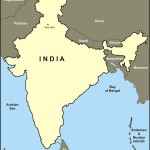Terrorism & Bush Jr Administration
Terrorism was an important theme during the presidential election campaign of George Bush Jr in 2000. It figured in his election platform and in the studies undertaken by think tanks associated with the Republican Party before the election.
Also read: How Pakistan’s Proxy War Began – I
The earliest position with specific reference to Pakistan and terrorism figured in a paper on Afghanistan prepared by the conservative Heritage Foundation of Washington DC in July, 2000, which said: “Washington’s neglect of Afghanistan’s festering problems has allowed the Taliban to dominate Afghanistan and export terrorism, revolution, and opium. Through disengagement, America squandered its influence in the region and left itself with few options besides hurling cruise missiles at Osama bin Laden’s easily replaceable training camps and bracing for further terrorist attacks.
Click to buy: A Terrorist State as a Frontline Ally
“This ‘chuck and duck’ approach is doomed to failure. Even if the United States were fortunate enough to eliminate bin Laden by military means, other Islamic radicals will continue to threaten American security and American allies from Afghan bases as long as the Taliban prevails there.
The ultimate US goal should be a stable, tolerant, inclusive Afghan Government that poses no threats to its neighbours or to its own ethnic and religious minorities.
“Rather than focusing narrowly on bin Laden, the United States should focus on uprooting the Taliban regime that sustains him and others like him. Washington should develop a regional strategy to halt Pakistan’s support of the Taliban, build up Afghan opposition to the Taliban, and encourage defections from its ranks. The ultimate US goal should be a stable, tolerant, inclusive Afghan Government that poses no threats to its neighbours or to its own ethnic and religious minorities. To accomplish this, Washington should cooperate with the broad anti-Taliban coalition that surrounds Afghanistan and help to forge a broad anti- Taliban coalition inside Afghanistan.”
The paper made the following recommendations:
- “Specifically, the United States should:
- Maximise international pressure on the Taliban, including additional United Nations sanctions, to halt its support of terrorism;
- Pressure Pakistan to end its support of the Taliban;
- Provide military, diplomatic, and economic support to the anti-Tali ban opposition;
- Forge a regional coalition to support the anti-Taliban opposition and support an Afghan peace settlement;
- Build an internal Afghan consensus for peace;
- Designate the Taliban as a terrorist organisation to set the stage for declaring Pakistan a state sponsor of terrorism if it continues to support the Taliban;
- Provide humanitarian aid to non-Taliban areas of Afghanistan;
- Appoint a special envoy for Afghanistan to raise the priority of Afghan policy within the US Government and coordinate US policy with other governments;
- Allow the Afghan opposition to reopen the Afghan embassy in Washington, which has been closed since 1997;
- Revive bipartisan congressional activism on Afghanistan similar to the broad coalition that supported aid for the Afghans during the Cold War.”
Subsequently, in a fairly comprehensive statement on terrorism, Bush’s election manifesto, finalised in August 2000, said: “America faces a new and rapidly evolving threat from terrorism and international crime. Meeting this threat requires not just new measures, but also consistent policies and determination from America’s leaders.
America faces a new and rapidly evolving threat from terrorism and international crime. Meeting this threat requires not just new measures, but also consistent policies and determination from Americas leaders.
“Many established terrorist groups faded away in the 1990s after the Cold War ended. But the decade also witnessed a series of enormously destructive attacks against America. Increasingly, terrorists seem to be motivated by amorphous religious causes or simple hatred of America rather than by specific political aims. Terrorism crosses borders easily and frequently, including US borders, and cannot easily be categorised as either domestic or international.
“Republicans support a response to terrorism that is resolute but not impulsive. The most likely highly destructive terrorist attack remains a \/arge bomb hidden in a car or truck. Yet, as with the rest of our defence posture, we must prepare for the most dangerous threats as well as the most likely ones. Therefore, the United States must be extremely vigilant about the possibility that future terrorists might use weapons of mass destruction, which are increasingly available and present an unprecedented threat to America. In many instances, the military will have to rethink its traditional doctrine and begin to focus on counter-terrorism, human intelligence gathering, and unconventional warfare.




